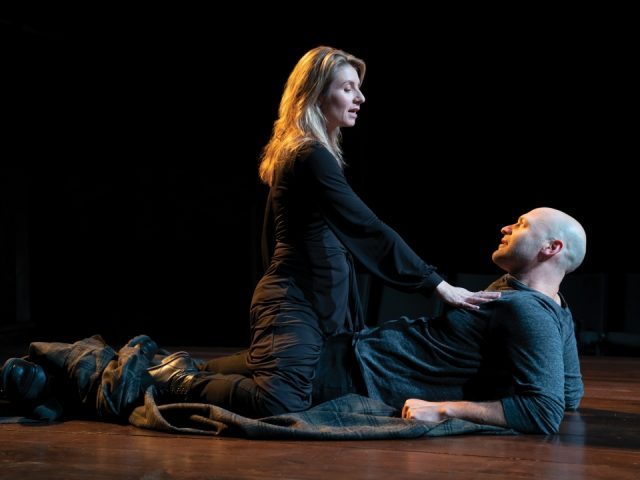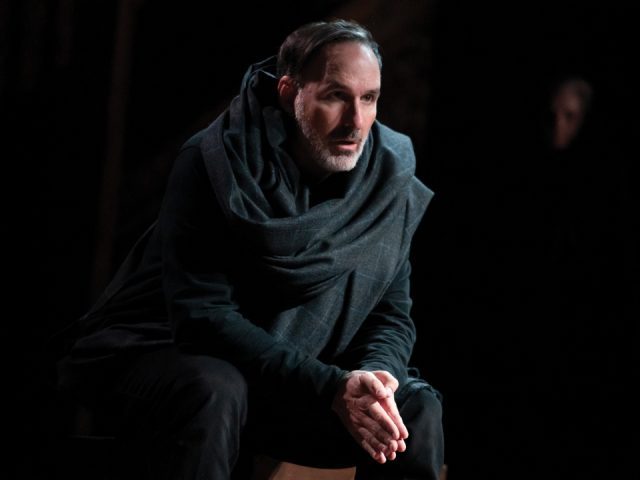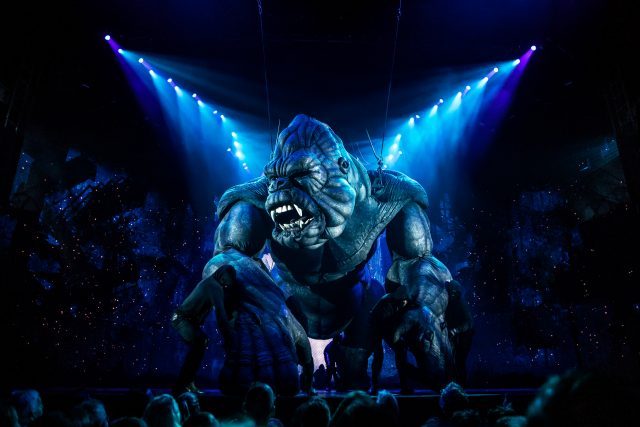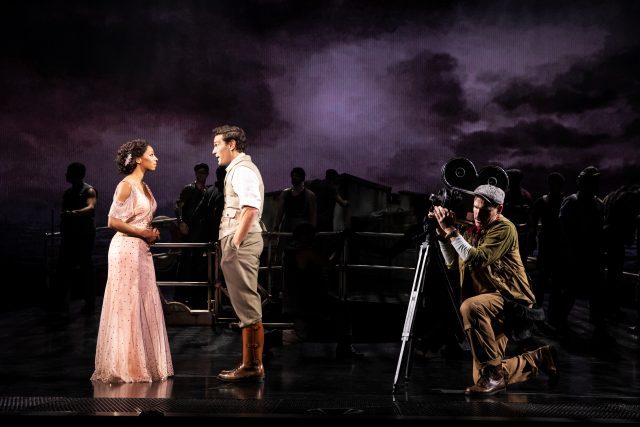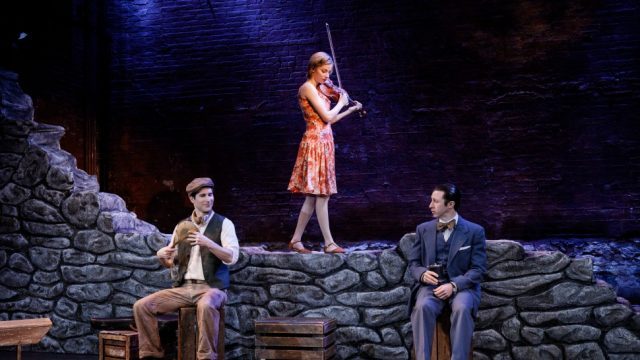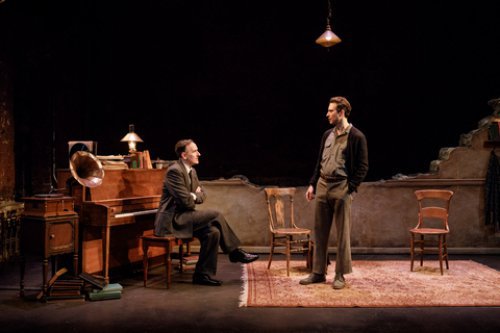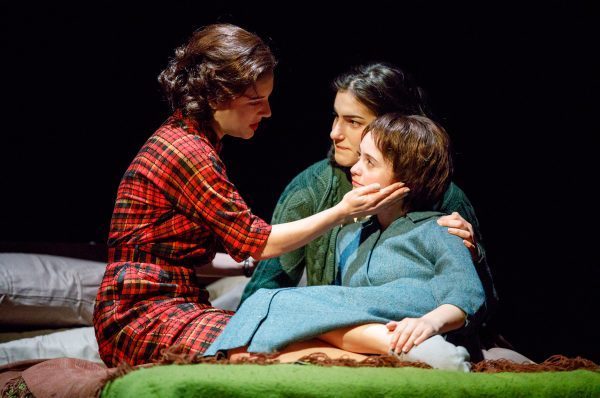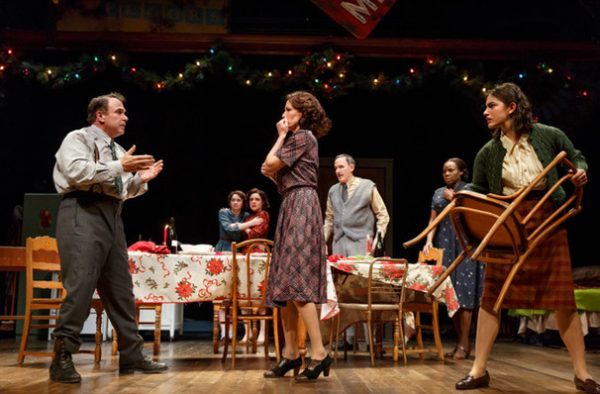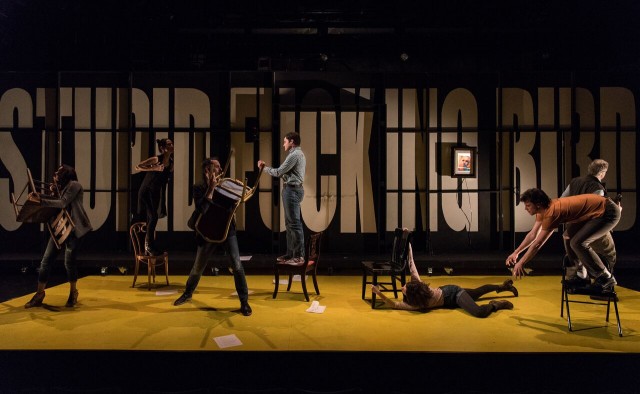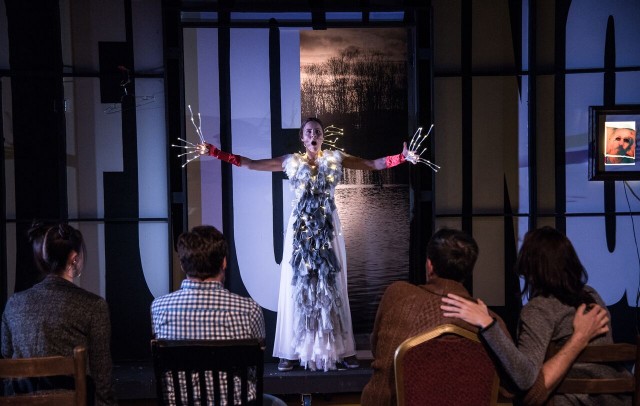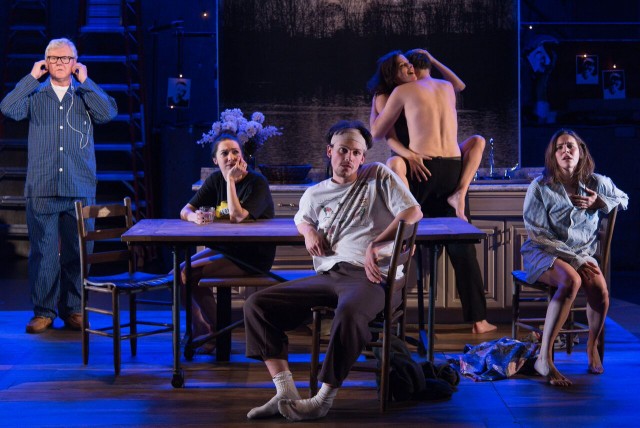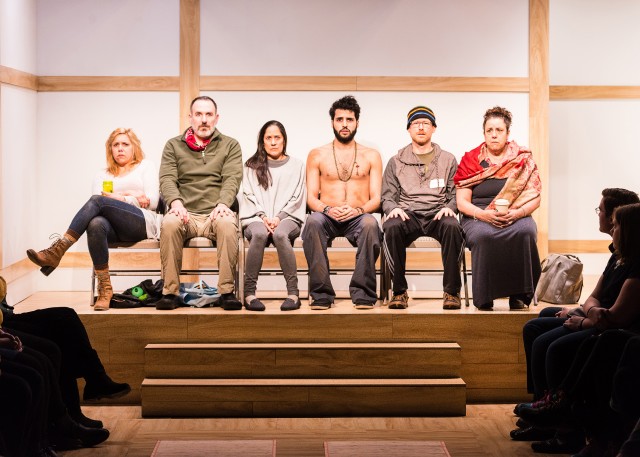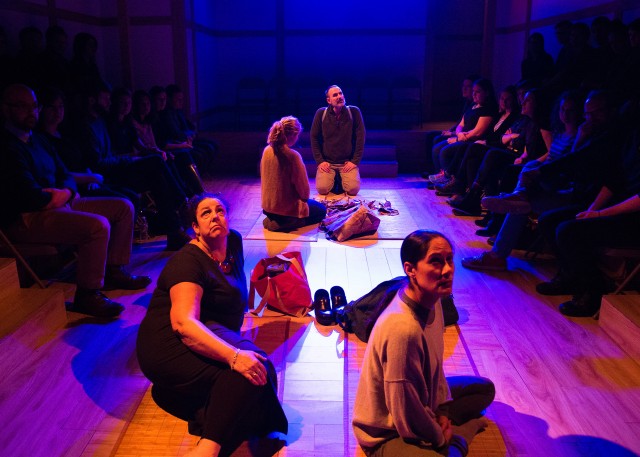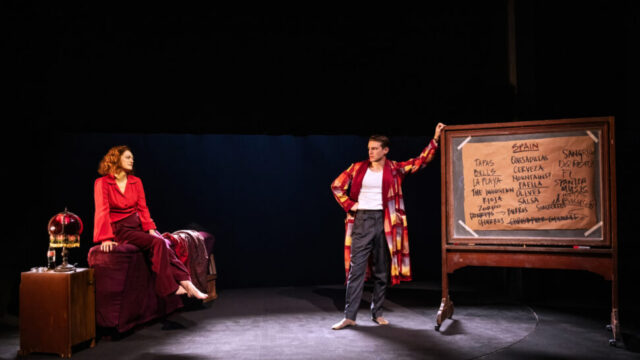
Helen (Marin Ireland) and Joris (Andrew Burnap) share their ideas about Spain in world premiere at Tony Kiser Theater (photo by Matthew Murphy)
SPAIN
Second Stage Theater — Tony Kiser Theater
305 West 43rd St. between Eighth & Ninth Aves.
Tuesday – Sunday through December 17, $46-$106
2st.com/shows
“Spain! What’s not to love about Spain?” Dutch documentary filmmaker Joris Ivens (Andrew Burnap) says in the opening monologue of Jen Silverman’s new play, Spain. While there’s lots to love about the Iberian country, there’s not enough to love about the show, running at Second Stage’s Tony Kiser Theater through December 17.
Spain is a fictionalized behind-the-scenes account of the development of Ivens’s 1937 film The Spanish Earth. Ivens, who had previously made such films as The Street, The Bridge, Rain, and Borinage, is hired by KGB agents — “They weren’t calling themselves that, obviously, it was the Office of the Branch of International Cultural Socialist Whatever Whatever but — the KGB,” he explains — to make a propaganda film about the Spanish Civil War to elicit the sympathy of the American public, and financial donations, in support of the common Russian. Reciting what his handler, Karl (Zachary James), has told him, Joris relates, “The War in Spain Is a War / Between the Rich and the Poor / The Noble Peasant Crushed by the Rich Fascist / See? / A Single-Sentence War / And Single-Sentence War Is a Perfect Opportunity for . . . / — and then he said: ART / but we both knew that wasn’t the word he meant.” Joris is also told to never reveal that the Russians are behind the movie.
Joris enlists the aid of his personal and professional partner, Helen (Marin Ireland), based on real-life editor Helen van Dongen. They decide to hire Chicago-born novelist John Dos Passos (Erik Lochtefeld), whose best friend is Spanish author and activist José Robles, to write the script, primarily to lure in Ernest Hemingway (Danny Wolohan), Dos’s competitive colleague. It also helps that both Dos and Hemingway have been to Spain, which is not true of Joris and Helen, who write words on a blackboard to show what they know about the country, including “tapas,” “bulls,” and “cerveza.”
Although Joris has been sworn to secrecy about the Russian involvement, Helen seems more casual about the relationship, mentioning by name a man named Ivor, who was more than just a handler, arousing jealousy in Joris. “So you don’t love him. You do love him? You did love him but you don’t anymore? You did and you still do but you love me more?” Joris burbles. They also argue about their careers and what constitutes art, understanding they are at the beck and call of the Russians, who want Joris to make a film about Italy next. “Are you sure this is worth it?” Helen asks Joris.
Soon the testosterone-charged, philandering Hemingway and the more straightlaced Dos are tossing about ideas for the screenplay and needling each other. “You like to make things complicated. I like to keep them simple,” Hemingway tells Dos, who responds, “You want people to feel like they don’t need to be any smarter or better. You just want them to love you.” To which Hemingway replies, “Maybe they’re smart enough. There’s a reason nobody wants to read your books.” At the time, Dos had just completed the third book in his U.S.A. trilogy, while Hemingway had already published such books as The Sun Also Rises and A Farewell to Arms.
As the prep work continues, relationships unravel and storylines tangle. “What’s started to scare me lately is this feeling that I can’t remember what was the cover story and what was the real story / what’s the art and what’s the plan / and what’s the back-up plan,” Helen says. She warns Joris of potential danger from the back-room dealings.
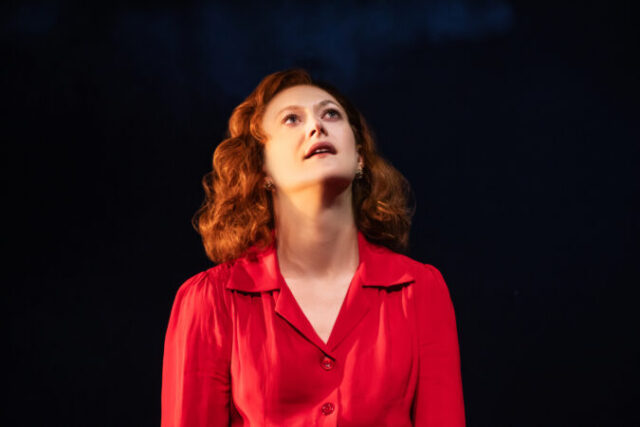
Helen (Marin Ireland) gets caught between propaganda and art in Spain (photo by Matthew Murphy)
Early on, Karl tells Joris to make the film about Spain as metaphor; the word metaphor appears six more times in the play, but Silverman (Collective Rage: A Play in 5 Betties, The Moors) and director Tyne Rafaeli (The Coast Starlight, Selling Kabul) can’t seem to decide if it’s a true story, a noir thriller, or a metaphor about politics and the creation of art.
Dane Laffrey’s dark set features such compelling touches as shadowy doorways where the Russians appear, threateningly, and a red phone lodged in a wall space, as well as an odd recording room where Hemingway expounds on life and art. The stage is dimly lit by Jen Schriever, with menacing music and sound by Daniel Kluger and costumes by Alejo Vietti, highlighted by Helen’s dramatic red blouse. Burnap (The Inheritance, Camelot) is bland and boring as Joris, Wolohan (Camelot, Assassins) is overly bombastic as Hemingway, James (The Addams Family, South Pacific) is mysterious as the hulking Karl, Lochtefeld (Stupid F***ing Bird, Small Mouth Sounds) is superb as Dos, and Ireland (Reasons to Be Pretty, Uncle Vanya) manages to overcome the inconsistencies written into her character.
Narrated in separate versions by Hemingway, Orson Welles, and Jean Renoir (in French), the fifty-two-minute The Spanish Earth was released in July 1937, a year after the war started and nearly two years before it would end with the Nationalist victory and Francisco Franco’s seizure of power. The war inspired classic works by Pablo Picasso, Salvador Dalí, Joan Miró, Alexander Calder, George Orwell, Jean-Paul Sartre, Guillermo del Toro, and others; sadly, the obtuse Spain does not make the cut.
[Mark Rifkin is a Brooklyn-born, Manhattan-based writer and editor; you can follow him on Substack here.]
